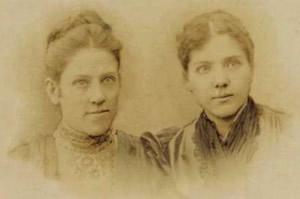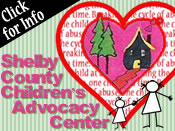December 1, 2017 - Who among you have NOT sung the little four-line ditty to honor someone’s birthday: “Happy Birthday To You; Happy Birthday To You; Happy Birthday Dear (fill in name); Happy Birthday To You.”
According to the 1998 Guinness Book of World Records, this song is the most recognized tune in the English language, followed by “For He’s a Jolly Good Fellow”, and “Auld Lang Syne”, the three most popular songs in the English language. The song’s base lyrics have been translated into at least eighteen languages.
 Who would have thought that this little tune would be so famous? I have sung it all my life, so far. I did not realize that the melody actually comes from the song Good Morning To All, which was written and composed by American siblings Patty Hill and Mildred J. Hill in 1893. Patty was a kindergarten principal in Louisville, Kentucky developing various teaching methods at what is now the Little Loom house. Mildred was a pianist and composer. The sisters created “Good Morning To All” as a song that would be easy to be sung by young children.
Who would have thought that this little tune would be so famous? I have sung it all my life, so far. I did not realize that the melody actually comes from the song Good Morning To All, which was written and composed by American siblings Patty Hill and Mildred J. Hill in 1893. Patty was a kindergarten principal in Louisville, Kentucky developing various teaching methods at what is now the Little Loom house. Mildred was a pianist and composer. The sisters created “Good Morning To All” as a song that would be easy to be sung by young children.
The song first appeared in print in 1912, and probably existed much earlier. None of these early appearances included credits or copyright notices. However The Summy Company registered it for a copyright in 1935, crediting authors Preston Ware Orem and Mrs. R. R. Forman with the “Happy Birthday” song.
In 1990, Warner Chappell purchased the company owning the copyright for $15 million, with the value of “Happy Birthday” estimated at $5 million. Based on the 1935 copyright registration, Warner claims that the United States copyright will not expire until 2030. So, unauthorized public performances of the song are technically illegal unless royalties are paid to it. In one specific instance on February 2010, these royalties were said to amount to $700.
In 1988 Birch Tree Group, Ltd. sold the rights of the song to Warner Communications, along with all other assets, for an estimated $25 million dollars. American law professor Robert Brauneis, who has heavily researched the song, has expressed strong doubts that it is still under copyright. Whatever the case may be, this little simple song “Happy Birthday To You” continues to bring in approximately $2 million dollars in licensing revenue each year according to Warner Communications.
It seems that the singing of the song “Happy Birthday To You” at a person’s birthday party could be subject to copyright laws. Who would have thunk it? I suppose I will just have to take my chances on this as I will continue to wish my friends a “Happy Birthday” by singing this song. Just in case, may I borrow bail money from someone?









